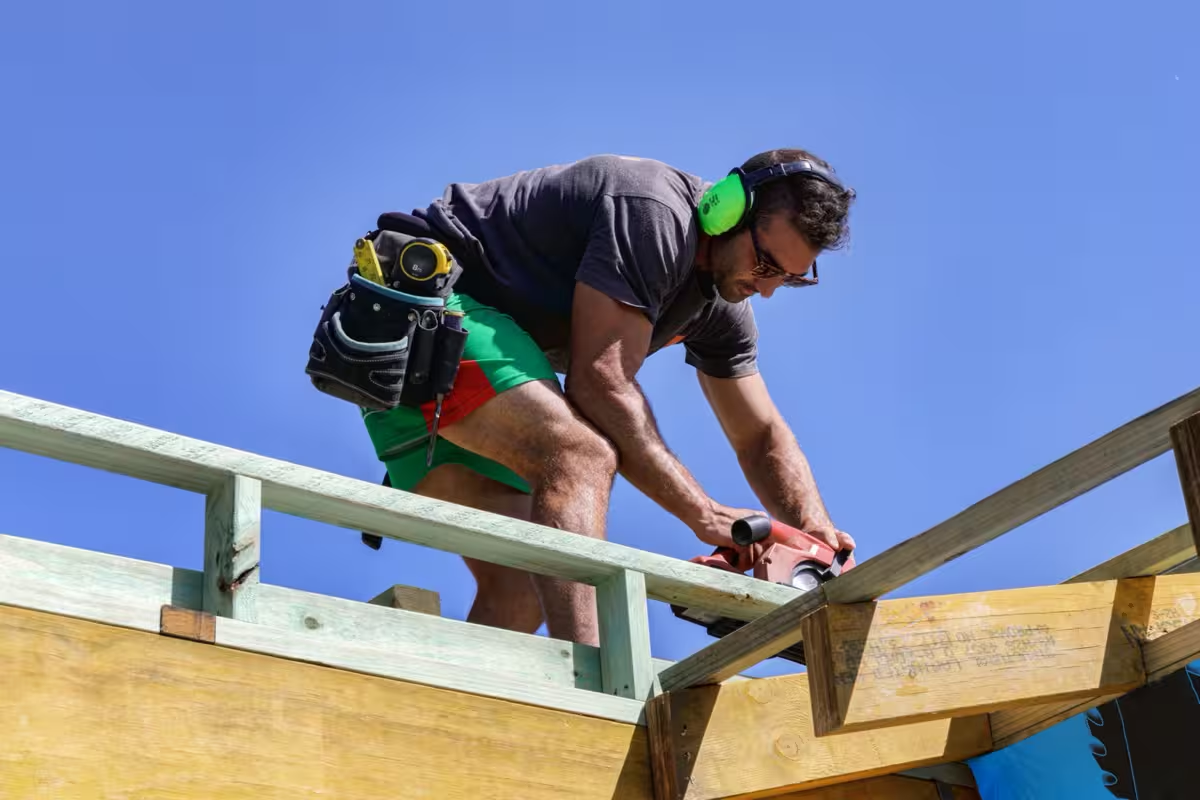A wave of Kiwi tradies heading to Australia
Post-Covid, heaps of Kiwi tradies are packing their bags and heading for Aussie. Builders, sparkies, plumbers, and other skilled workers are chasing bigger pay packets and better opportunities across the Tasman.
Stats tell the story: in the year to March 2025, around 70,000 New Zealand citizens left the country – and about two-thirds went to Australia. In 2023 alone, 44,500 Kiwis made the move, nearly 1% of our population .
One Northland tradesman summed it up bluntly after moving with his family to Queensland: “We couldn’t see us paying off our mortgage anytime soon [in NZ]… now we’re living comfortably on a farm.”
The pull of Aussie pay and perks
The most obvious driver is money. Across the board, Australians earn about a third more than New Zealanders – and in the trades, the gap is even bigger.
A viral video this year showed Aussie tradies boasting six-figure salaries, like a scaffolder taking home up to $156k after tax, and a diesel mechanic charging $130 an hour – about $250k a year .
Compare that with NZ rates:
- Scaffolder: $60k–$70k in NZ vs $70k–$90k+ in Aus.
- Plumber: $60k–$70k in NZ vs $100k+ in Aus .
One Kiwi worker put it simply: “That Australian income just flipped the switch for us… over there we can finally save money and aren’t scraping by or wondering what the grocery bill is.”
On top of higher wages, Australia offers 11% superannuation (paid by the employer, not deducted from wages) and stronger union protections that guarantee overtime rates and regular increases.
More work, more variety
It’s not just higher pay. Australia’s construction sector is booming with massive infrastructure projects, mining, and housing demand.
One young Kiwi tradie who moved to Brisbane said on Reddit: “The grass is greener over in Australia for young tradies… there are simply more opportunities in Aus, give it a crack.”
Another noted that gaining Aussie experience is a career boost in itself: “I found there’s more opportunities in [Australia] generally… you’ll be better positioned if you come back to NZ.”
The push from New Zealand
Life in NZ hasn’t been making it easy for tradies to stay.
- Rising costs: From groceries to housing, it’s getting harder to get ahead. One Kiwi couple in Perth said, “Chicken for $4/kg and steak for $12 – prices unheard of in NZ.”
- Slow wage growth: Many feel stuck financially, watching costs rise while pay stays flat.
- Fewer big projects: As the Covid-era building boom cooled, some struggled to find enough high-paying work.
For many, the maths is simple: higher income in Australia means a chance to save, pay down debt, and live more comfortably.
Lifestyle and adventure
Not all moves are about money. Some younger tradies see Australia as their delayed OE after Covid lockdowns.
One carpenter’s mate in Brisbane urged him: “Why don’t you make the move?” — and for many who did, they call it “a really good decision” that opened up new opportunities .
With easier pathways to citizenship for Kiwis, warm weather, and bigger cities, Australia has become an attractive fresh start.
Is the grass really greener?
Of course, it’s not all upside.
- Housing costs: Sydney and Melbourne are pricier than Auckland or Wellington for housing.
- Distance from whānau: One Kiwi who worked in Perth admitted, “The only downside [of Australia] to me was distance from family.”
- Lifestyle adjustments: A couple who moved to rural Queensland found the nearest supermarket was two hours away. Danica Wells, who moved inland from Brisbane, said: “I’m a massive people person… the biggest thing I struggle with is there’s literally nobody here.”
- Natural threats and climate - From worries about wildfires, to snake bites and being kicked by a kangaroo, there's something be to be said for the relative safety in New Zealand vs Australia. With a more moderate climate, beautiful natural surroundings, and less risks in the water and bush, getting out and about in New Zealand can feel safer and more relaxing.
So while the pay is better, the lifestyle trade-offs can be real.
The impact on NZ construction
This wave of migration is leaving big gaps at home.
- Skill shortages: Apprentices qualify, then head offshore. Master Plumbers NZ called it an “exodus of apprentices” .
- Project delays: Some firms are booked out months ahead. Recruiters report local companies having to match Aussie wages just to hold onto staff.
- Losing top talent: As one economist warned, “Workers in Australia benefit from modern awards… higher pay and better conditions have been a game changer.”
NZ ends up relying more on immigration to fill the gaps, but many of those workers eventually eye up Australia too.
What Kiwi businesses can do
Businesses can’t solve the wage gap overnight, but they can take practical steps to keep their teams:
- Pay more (and fairly): One union leader said the solution is simple: “Pay people here the same as they get over there.”
- Offer training and growth: Fund licences, certifications, or leadership courses to give tradies a clear career path.
- Build a strong culture: As one industry voice put it, “Make your sites places people want to work.” That means respect, safety, and a bit of flexibility .
- Give better tools and systems: Adopt tech like job management software to cut admin and reduce frustrations on site.
- Invest in the next generation: Use apprenticeship schemes, encourage school leavers, and bring in underrepresented groups.
The more Kiwi firms can make tradies feel valued, the less tempting Australia becomes.
The bottom line
The post-Covid tradie exodus is a wake-up call. Australia will always have appeal, but NZ businesses can fight back by paying fairly, offering growth, and creating workplaces people don’t want to leave.
As one seasoned builder put it when weighing up the move: “It depends what you value and what you’re willing to compromise… some of those priorities change as well.”
By listening to what tradies actually value – whether it’s whānau time, fair pay, or a good culture – Kiwi construction firms can keep more of our talent here at home.
—
We’re backing Kiwi tradies to thrive at home. NextMinute makes the job side of business easier, so you can focus on the work that matters. Give it a go – free trial here.











